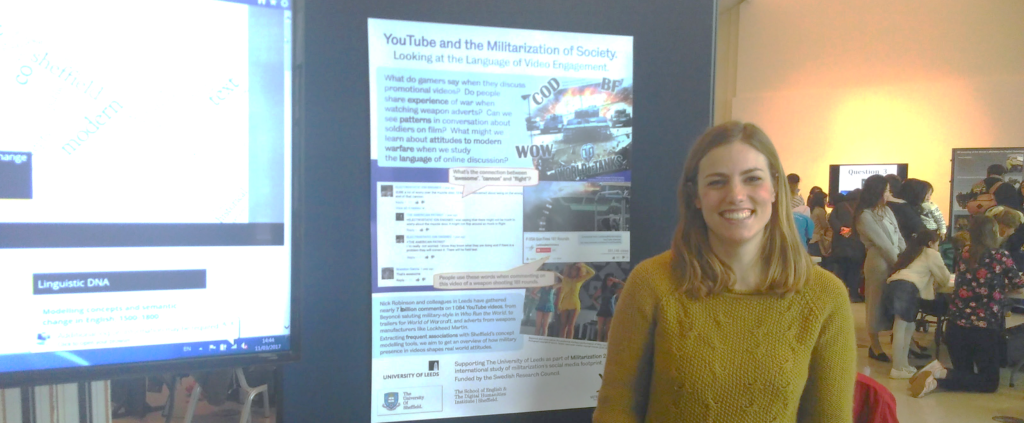The impact of Linguistic DNA’s “concept modelling” work is illustrated by application of procedures in a range of projects at the Digital Humanities Institute | Sheffield:
- During 2017, the Sheffield Linguistic DNA team provided support to University of Leeds researcher Dr Nick Robinson to assist the international research project Militarization 2.0: Militarization’s social media footprint through a gendered lens (funded by the Swedish Research Council). Dedicated research work for this satellite project was carried out by Sheffield postgraduate researcher, Rosie Shute, with input from Sheffield MA student Nadia Filippi. The principal data consists of YouTube video comments. Is the notion of the military as “good, natural and necessary” evident in discussion beneath videogame adverts and other militarised genres?
- From Autumn 2016, the Sheffield Linguistic DNA team consulted on quantitative linguistic analysis of social science publications for the ESRC-funded project, Ways of Being in a Digital Age. DHI Sheffield prototyped a customised concept-modelling interface as well as adapting LDNA processes to identify salient discourses in this modern English data.

Linguistic DNA and Militarization 2.0 co-host a stand at the 2017 Festival of Arts & Humanities Showcase, Sheffield.
Expertise in concept modelling is not the only discernible impact of Linguistic DNA’s work in Sheffield:
- In Spring 2016, the Linguistic DNA project supported a work placement addressing searchability in sixteenth-century English transcriptions from a previous DHI project. Sheffield MA student Amy Jackson explored the capacity of MorphAdorner‘s annotations to improve results for queries on Thomason’s Newsbooks. Amy’s work also prompted informal data sharing with NorthWestern University, where Martin Mueller has been using Newsbooks transcriptions as training data with student interns in connection with the Mellon-funded Early Modern Lab.